At the Epicenter of the Coronavirus, A Generation of HOPE Nurses Fights Back
Health workers in Wuhan, China could have never anticipated a global health emergency would strike in their city. But thanks to the HOPE School of Nursing, many of them are well-equipped to face it.
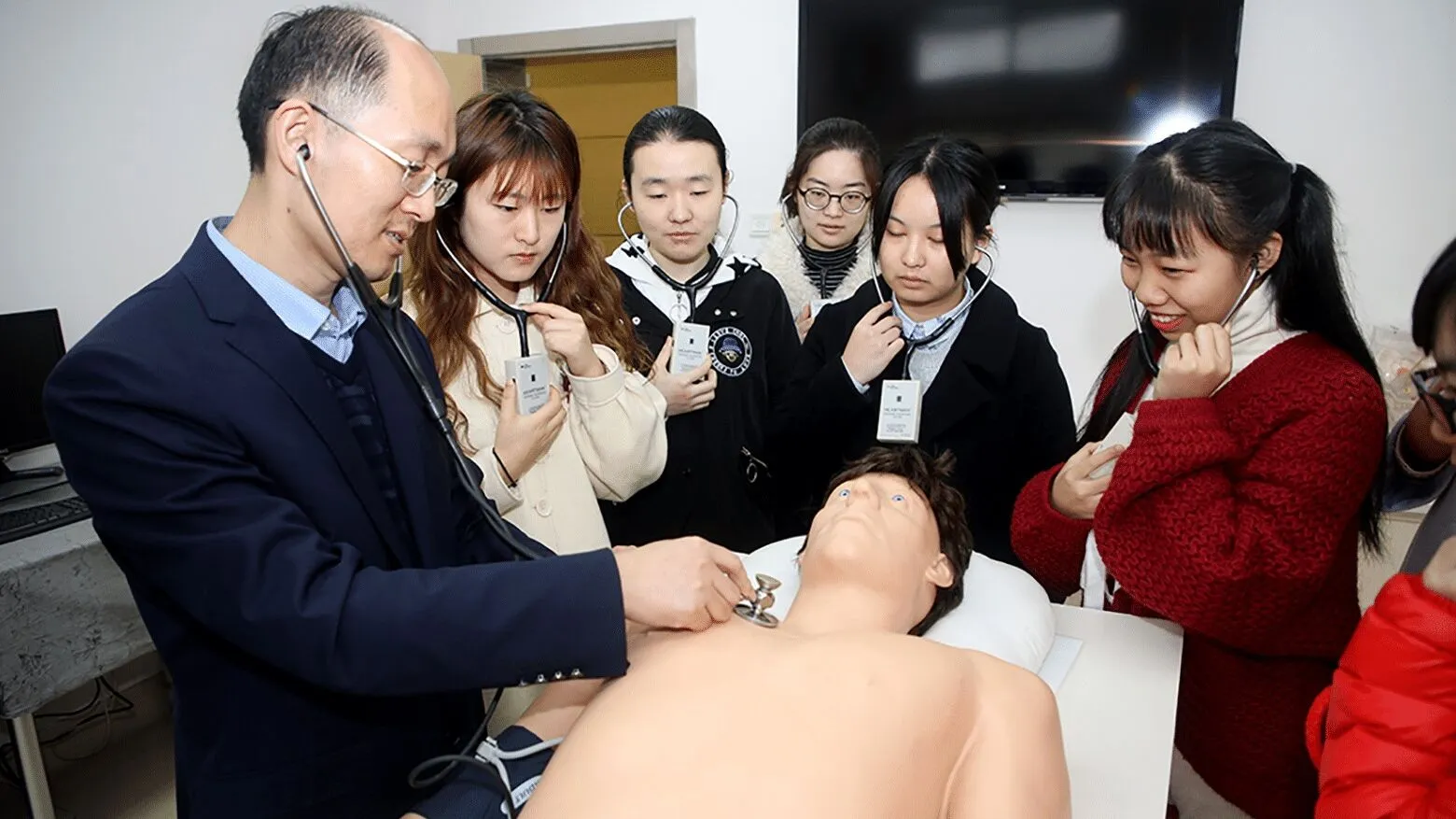
Note: This story was written before COVID-19 became a global pandemic. Click here to get the latest on Project HOPE’s worldwide response to COVID-19.
At ground zero of the new coronavirus, inside the overcrowded hospitals of Wuhan University, Hu Hui is one of the many nurses working frantically to contain the outbreak.
Wuhan has the world’s attention. The coronavirus has spread rapidly from central China’s largest city to at least 25 other countries, while the number of cases inside the country has far surpassed the scope of the 2002–03 SARS outbreak. It’s hard to know the real toll inside Wuhan — according to one estimate, there may be 75,000 people infected inside the city.
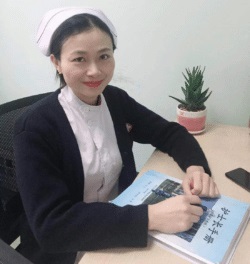
But nurses in Wuhan have been preparing for disaster. That’s because the city is home to one of the premier nurse training schools in China, the Wuhan University HOPE School of Nursing. For two decades, the school has trained tens of thousands of nurses from across the country in hands-on care, including disaster preparedness.
Now, these nurses are on the front lines of the coronavirus outbreak.
Hu Hui is one of the first graduates from the school. She joined Zhongnan Hospital right after graduation and was promoted to head nurse in 2013. As an experienced nurse in the infection disease department, she’s been in charge of setting up isolation wards in multiple hospitals since the start of the outbreak — the first line of defense to contain a virus that some experts believe could become a pandemic.
“The Chinese people are facing a national crisis,” she says. “As a nurse, this is my responsibility, and no matter how hard it will be, I won’t give up.”
Revolutionizing education for nurses
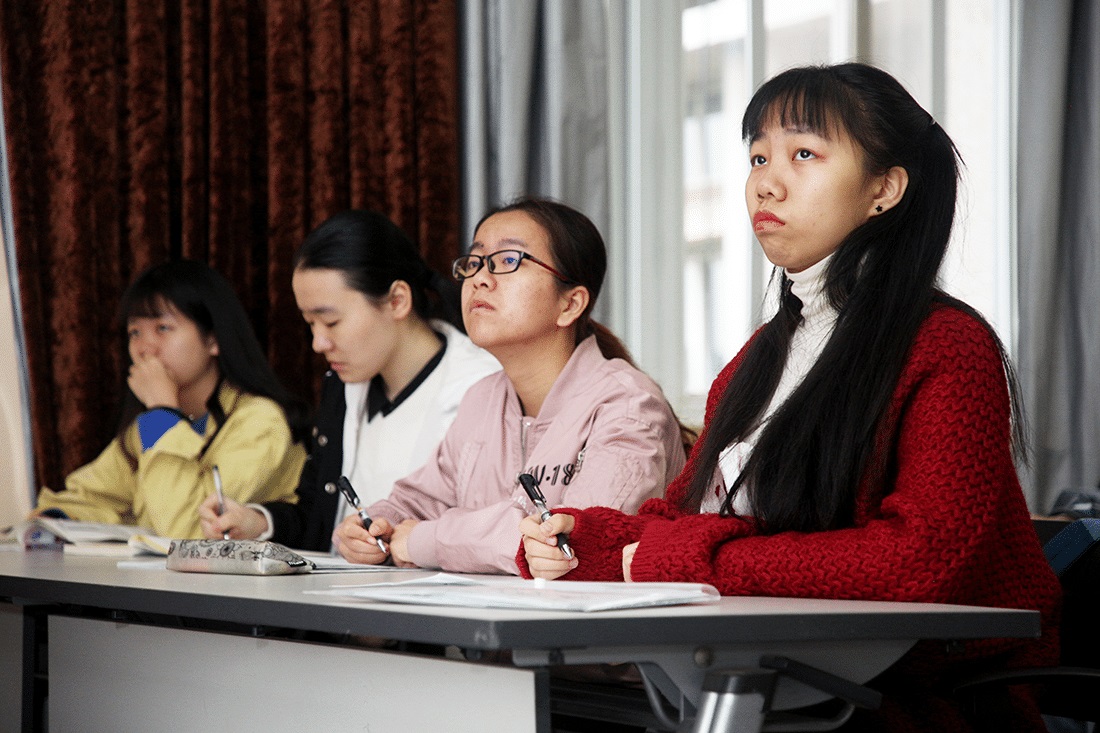
China’s shortage of qualified health workers has been a challenge for decades. It’s estimated there are only about three registered nurses for every 1,000 people in the country — a ratio that makes it nearly impossible to meet the demands of a growing, and aging, population. They also have varying levels of education: only 8% of practicing nurses have undergraduate or graduate degrees.
That’s why, in 2001, HOPE partnered with Wuhan University to educate a team of future nursing leaders. Together we formed the Wuhan University HOPE School of Nursing, offering China’s first ever master’s and Ph.D. programs in nursing.
Unlike other schools, the HOPE School of Nursing goes beyond theory and takes students outside the classroom. Nurses put studies into practice through hands-on work, clinical practice, and community visits with elderly patients. Many of the school’s teachers have traveled abroad for training.
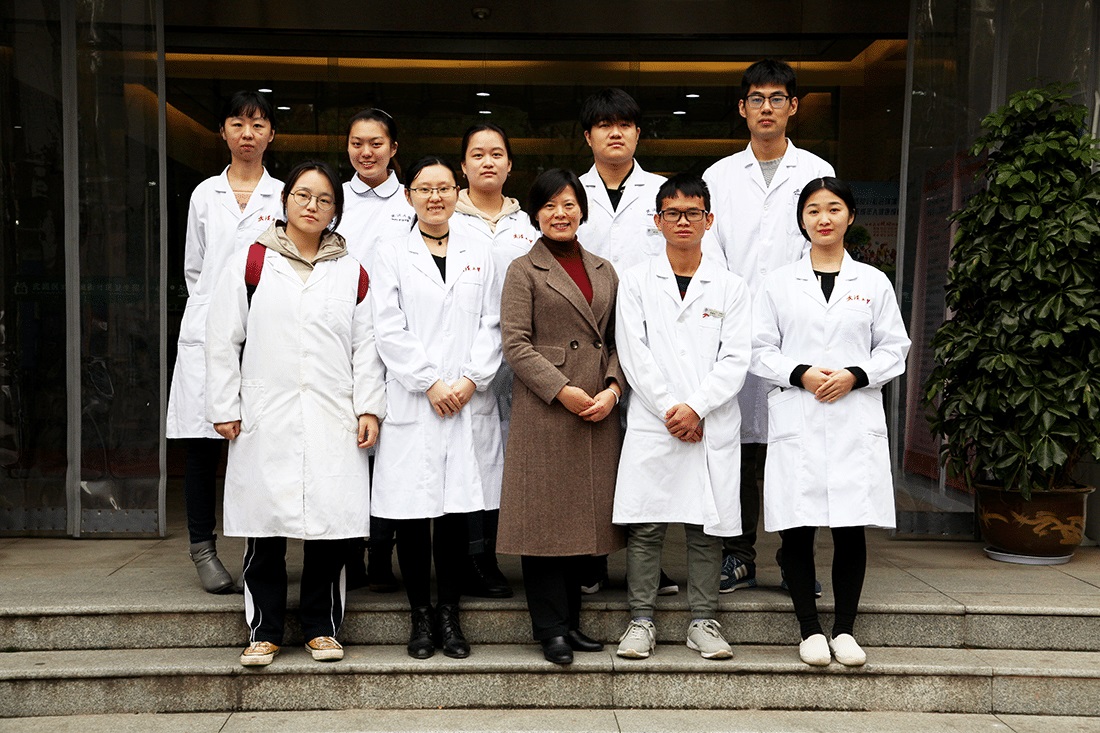
“We spend a lot of time training young teachers and clinical teachers — not only those from Wuhan University, but also a large number of teachers from throughout the country,” says Liu Ping, vice dean of the school. “About 90% of our teachers have gone to the United States to receive training. Our teacher training is a very important aspect of this school.”
Sharon Redding, president of Project HOPE’s Alumni Association, saw the power of this approach firsthand when she helped train nurses in the school in 2014 and 2016.
“The Wuhan HOPE School of Nursing is very different from other nursing programs in that it focuses on preparing nurses as leaders, managers, and educators,” she says. “Many of the nurse managers of hospital units in Wuhan are HOPE school graduates — they have been educated on disaster management principles in their undergraduate curriculum.”
In 2017, to help students better understand how to respond to disasters, HOPE expanded the school’s programming to include a Disaster Preparedness Training Center, a state-of-the-art lab that uses simulations to help nurses learn to use critical equipment and disaster response protocols. This hands-on experience has proven crucial to prepare nurses to respond to the current coronavirus outbreak.
“The Wuhan HOPE School of Nursing is considered the model for nursing education in China,” says Dr. Tom Kenyon, Project HOPE’s chief health officer. “Trusting relationships are critical in times of emergency — epidemics are going to happen, and you can’t build capacity easily once the epidemic has started. We need to have capacity to prevent epidemics as best we can, detect them sooner, and respond with the best tools to prevent them from becoming a pandemic.”
Discovering a different model of teaching
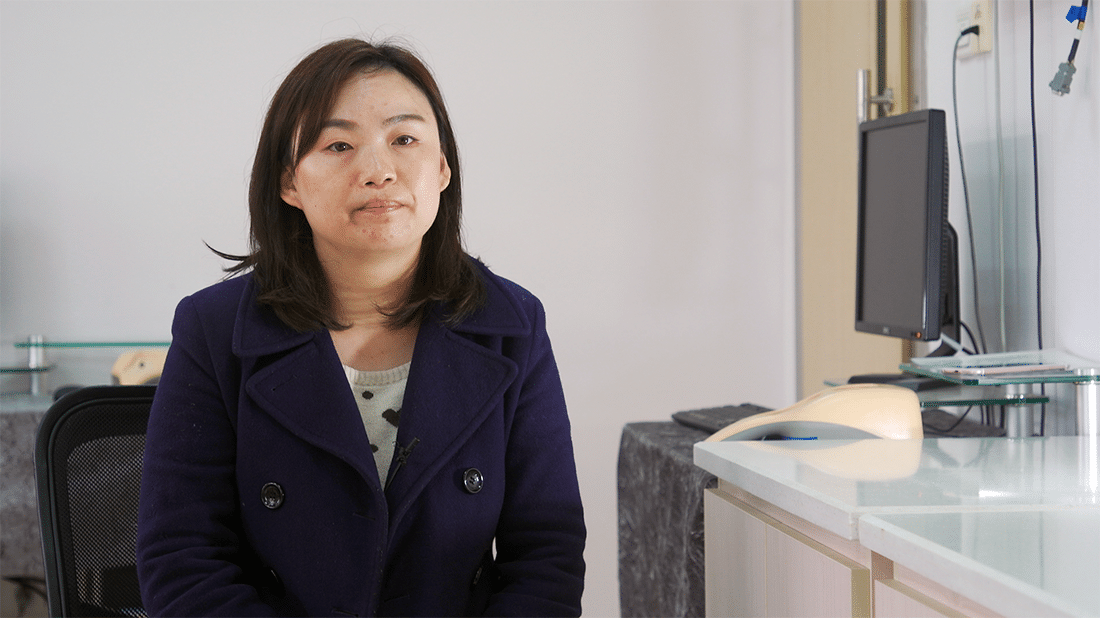
When Luo Dan first studied nursing as an undergraduate, she fell in love with the idea of working in health care. But she couldn’t shake the feeling that China’s nursing curriculum wasn’t quite keeping up with the realities on the ground.
When she went on to pursue her master’s degree at Wuhan University, she found the curriculum she’d been looking for — and felt so inspired that she decided to stay to be a teacher, knowing she’d be playing a vital role in strengthening China’s future.
For the last 10 years, she has been a faculty member at the HOPE School of Nursing.
“China is developing very fast,” she says. “When it comes to patient outcomes, however, there is still a gap compared to the United States or more developed regions. In our country, for historical reasons, higher education in nursing stagnated for about 20 years. It was not until after 1980 that the undergraduate nursing education was restarted. This stagnation caused many of our nurses to receive a low amount of education. So part of an education like ours is to tell students what kind of nurses they can develop into.”
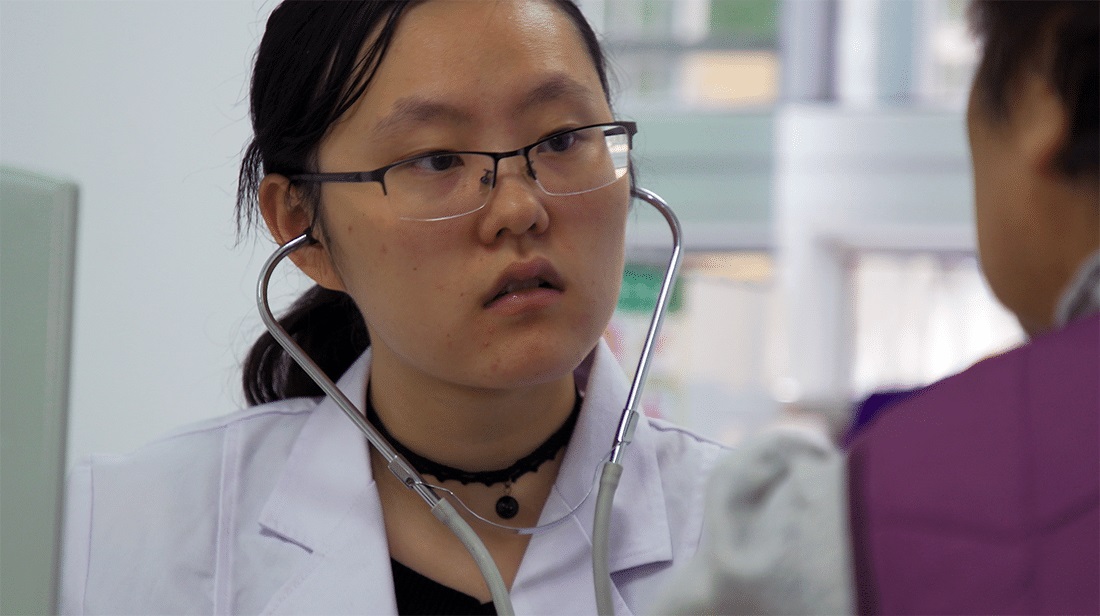
That sense of inspiration, she says, is one of the most important parts of her job — changing how students see themselves as nurses and empowering them to make a difference in their communities. To do that, she focuses on getting students out of the classroom for the chance to work face-to-face with patients.
“No patient is exactly like a textbook,” Lou Dan says. “Our students visit patients’ homes and intern in hospitals. They gain a very real experience and then apply it to their patients.”
“Our methods and ideas are different,” adds Yu Liping, assistant dean of the school. “The curriculum we are using now uses theory and practice simultaneously — it’s a teaching method based on conceptual teaching. We focus on critical thinking and problem-solving.”
Sun Pingjing, a fourth-year student, says that leaving the classroom to practice in the community makes a huge difference — for students, but also for members of the community, many of whom are elderly or unable to come to the hospital for treatment.
“Every time we go out into the community to practice, we go together as classmates,” she says. “People are happy to see young people coming to help. Most of the family care needed in the community is for the elderly … They can feel a little lonely, so when young people like us come to help them, it makes them very happy.”
Inspiring future generations
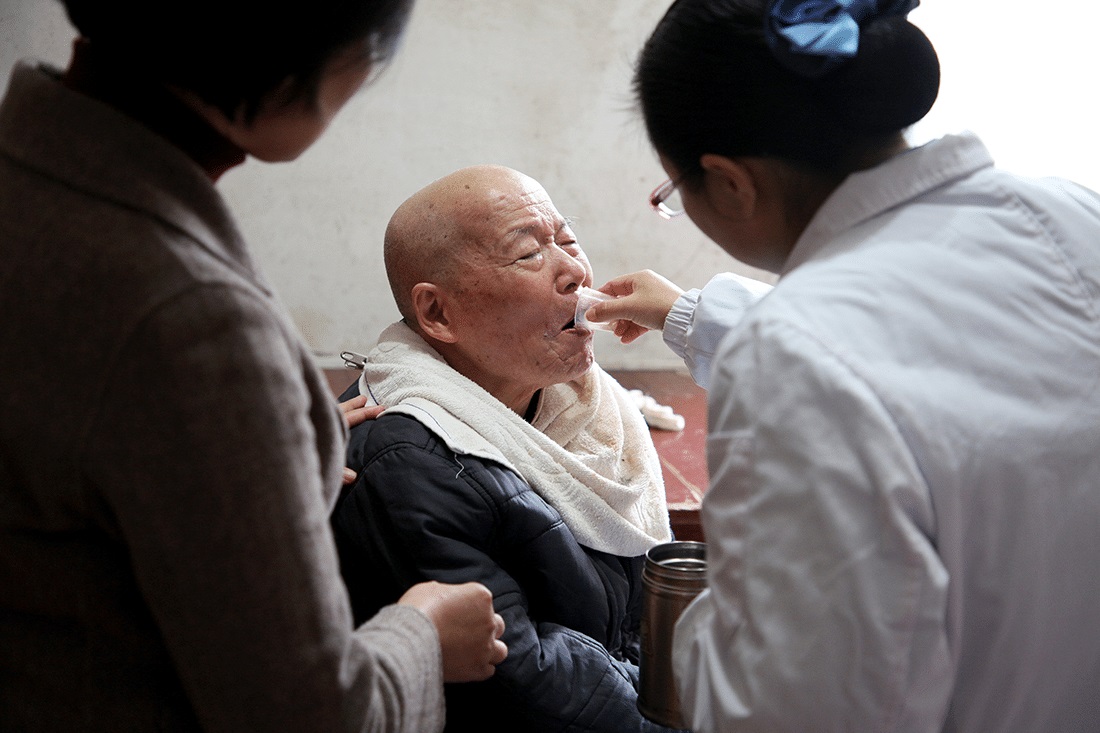
This focus on being engaged in the community has proven critical now, as the coronavirus spreads throughout Wuhan and is especially dangerous for elderly patients.
As HOPE school graduates combat the virus, and we send critical supplies to support them, the outbreak magnifies the looming health care worker shortage — in China and around the world — and the importance of inspiring new generations of nurses to be ready to step up when disaster strikes.
“When I take my students to do home visits, people in the community welcome our students into their homes,” Luo Dan says. “When our students go, they have knowledge and enthusiasm. They can do a lot of things the professionals can’t, and the people in the community welcome them.”
“Project HOPE’s mission of giving everyone the right to be in good health fits very well with our idea of caring as nursing care. I’m very happy. Because I work in this school, I can say I am a HOPE worker.”
Zhang Yifan, a third-year student, has seen the power of that mission firsthand.
“Maybe in the future I will study nursing, or maybe I’ll study something else,” he says. “Either way, all the things this school has given me will benefit me for a lifetime.”
Related Articles

Myanmar Earthquake: How to Help
03.28.2025

Myanmar Earthquake: Mobilizing a Response
03.28.2025
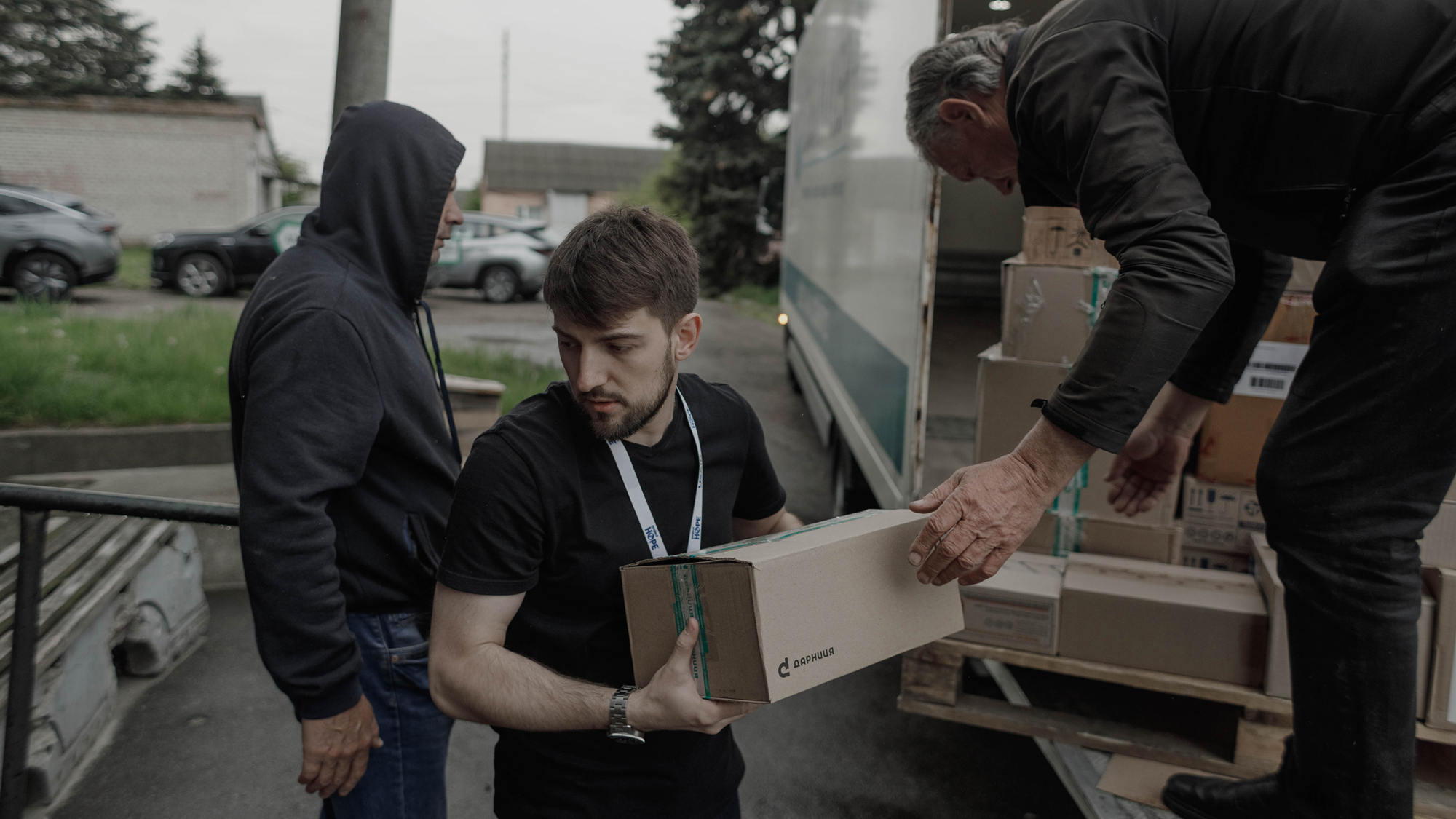
Voices of Resilience: Stories from Ukraine
03.27.2025
